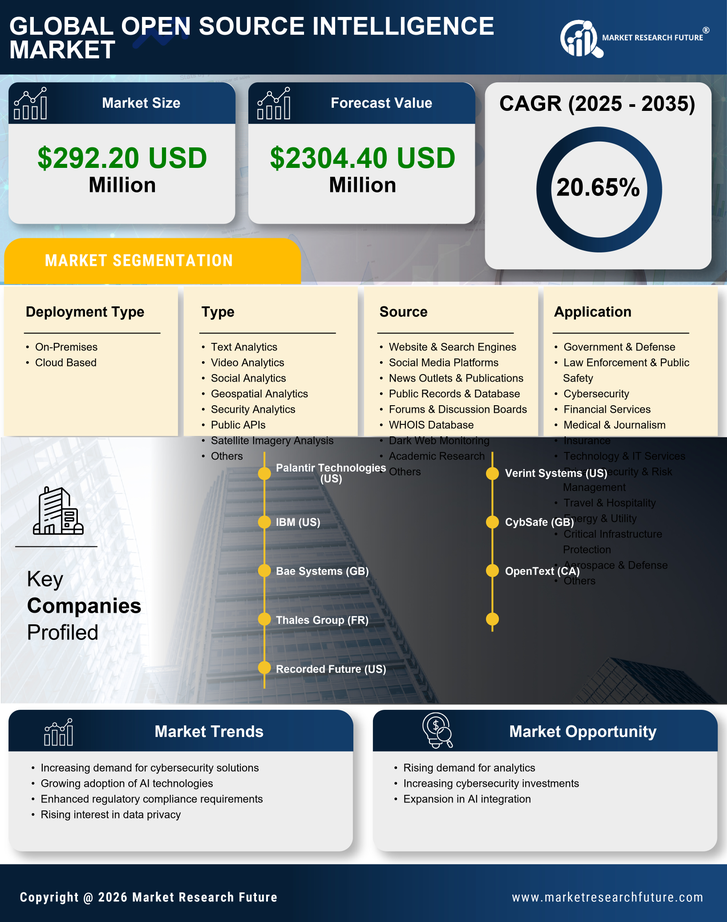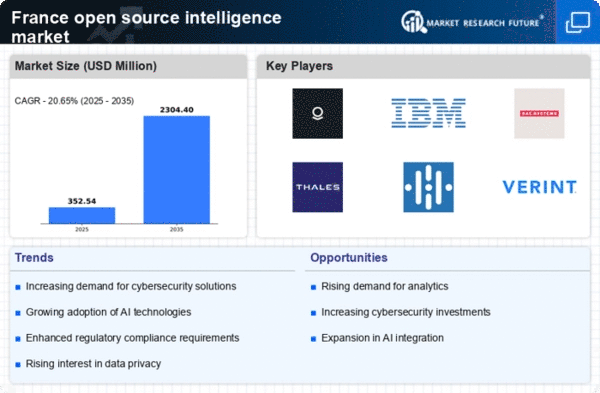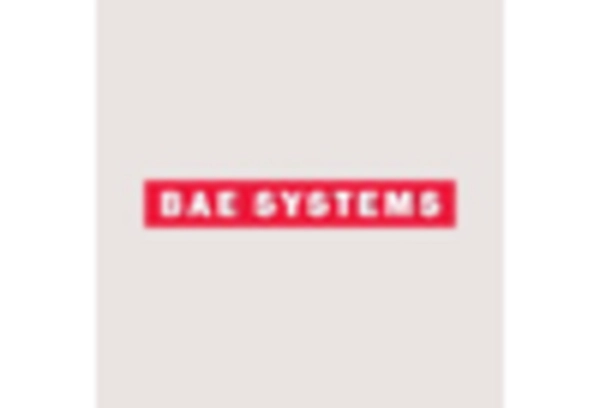The open source-intelligence market in France is characterized by a dynamic competitive landscape, driven by the increasing demand for data-driven decision-making and enhanced security measures. Key players such as Thales Group (FR), Palantir Technologies (US), and IBM (US) are at the forefront, each adopting distinct strategies to solidify their market positions. Thales Group (FR) focuses on integrating advanced analytics and AI into its offerings, aiming to enhance its capabilities in defense and cybersecurity. Meanwhile, Palantir Technologies (US) emphasizes partnerships with governmental agencies to leverage its data integration platforms, thereby expanding its influence in public sector applications. IBM (US) is actively pursuing digital transformation initiatives, particularly through its cloud-based solutions, which are designed to streamline data processing and improve operational efficiency. Collectively, these strategies contribute to a competitive environment that is increasingly reliant on technological innovation and strategic collaborations.
In terms of business tactics, companies are increasingly localizing their operations to better serve the French market, which appears to be a response to the growing need for tailored solutions. The market structure is moderately fragmented, with several players vying for dominance, yet the influence of major companies remains substantial. This competitive structure fosters an environment where innovation and strategic partnerships are essential for maintaining market relevance.
In October 2025, Thales Group (FR) announced a strategic partnership with a leading AI firm to enhance its cybersecurity solutions. This collaboration is poised to leverage cutting-edge AI technologies, potentially allowing Thales to offer more robust and adaptive security measures. The strategic importance of this partnership lies in its ability to position Thales as a leader in the rapidly evolving cybersecurity landscape, addressing the increasing threats faced by both public and private sectors.
In September 2025, Palantir Technologies (US) secured a multi-year contract with the French government to provide advanced data analytics services. This contract not only underscores Palantir's growing influence in the public sector but also highlights the increasing reliance on data-driven insights for national security and public safety. The strategic significance of this contract is profound, as it reinforces Palantir's reputation as a trusted partner in critical governmental operations.
In August 2025, IBM (US) launched a new suite of cloud-based open source-intelligence tools tailored for the European market. This initiative reflects IBM's commitment to digital transformation and its strategy to enhance operational efficiency for clients across various sectors. The launch is strategically important as it positions IBM to capture a larger share of the growing demand for cloud solutions in the open source-intelligence space, particularly in France.
As of November 2025, current trends in the open source-intelligence market are heavily influenced by digitalization, AI integration, and sustainability initiatives. Strategic alliances are increasingly shaping the competitive landscape, as companies recognize the value of collaboration in driving innovation. Looking ahead, competitive differentiation is likely to evolve, with a pronounced shift from price-based competition to a focus on technological advancement, innovation, and supply chain reliability. This transition suggests that companies that prioritize these elements will be better positioned to thrive in the future.

















